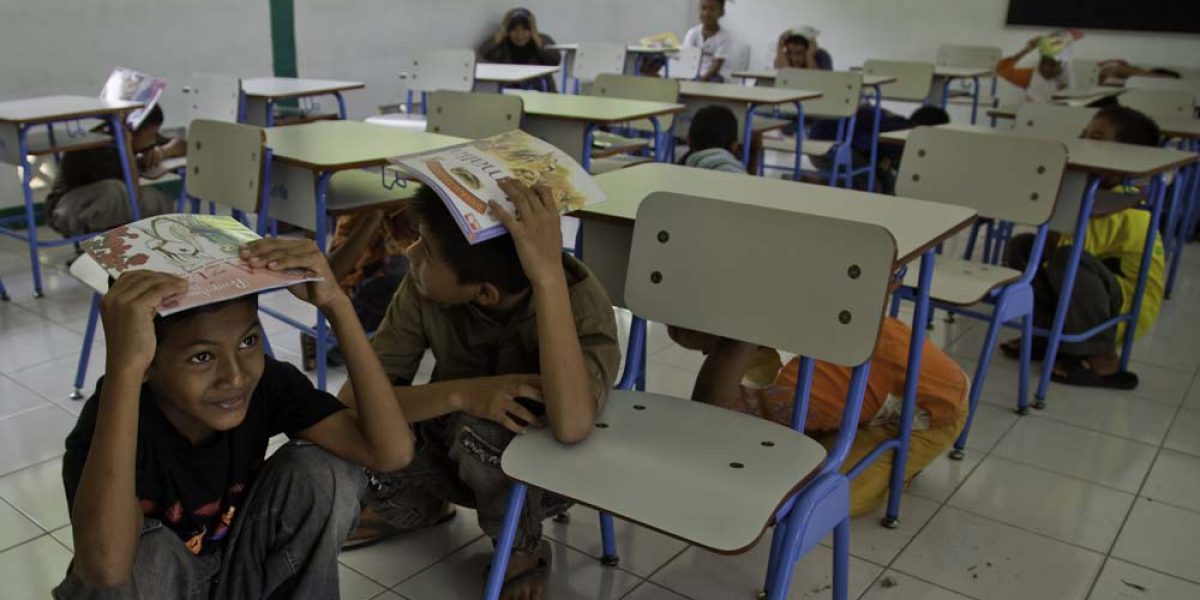Indonesia: reaching out
09 December 2011|Yoppie Christian

Aceh, 9 December, 2011 – Seven years ago this December, a huge tectonic plate on the floor of the Indian Ocean suddenly lunged, and Aceh, Sumatra, the nearest landmass, shuddered.
A few minutes later and without warning, the ocean seemed to tip wildly away from the shoreline and, then, tip back — a 9.3 earthquake had spawned a massive tsunami that took more than hundreds of thousands of lives and left half a million people homeless around its shores.
Aceh took the biggest hit.
JRS reached out to Aceh to offer assistance. What took shape was a partnership between a Catholic relief agency and a predominantly Muslim community, working together for the greater good of a struggling people. That fact was not lost on Don Doll, S.J., the Charles and Mary Heider Endowed Jesuit Faculty Chair at Creighton University, who spent two weeks photographing the recovery effort in Aceh.
“The Jesuits reach out to the poorest of the poor regardless of their faith,” Fr. Doll explained. “The Jesuits are assisting Muslims: What an example for the world!”
In order to help, the JRS team first had to listen — meeting with local leaders to build trust and an atmosphere of partnership.
It was crucial to involve the community, religious leaders, institutions, organisations and authorities in socialisation, assessment, program design and evaluations. That way, it was the community who took ownership in initiatives, workshops and publications. JRS not only employed local staff in key positions, but also sought the approval from local religious leaders and authorities before publishing information or making key decisions.
The communities, in general, welcomed JRS assistance after the organisation and its program were introduced to them, with only very few political leaders expressing suspicion and rejection, the team members said.
How to respond to suspicion? With respect and patience.
What was most interesting and, ultimately successful, was that Jesuits and other Christians were outnumbered on their own staff.
“Of the 41 JRS staffers who came together to help Aceh rebuild, only eight were Christian,” says Toto Yulianto, S.J., director of the JRS Aceh project.
“After working in Aceh for three years,” he adds, “JRS staff saw a change in the community… A primarily Muslim staff under the auspices of a Catholic organisation had lessons to learn when working in Aceh.”
When accompanying, serving and advocating for the rights of the rural communities in South Aceh, for example, JRS learned it could build on previous experiences working with Islamic communities in other parts of Aceh province. JRS staff members were all educated on local culture and religion and approached projects with respect.
Nowhere was this change in the community more stunning to the participants than a couple of special construction projects that took shape: the building of a mosque and the rebuilding of an Islamic school.
The work of JRS in Aceh ended this past June, after finishing the scheduled three-year implementation.
What remains? A mosque built by many hands from different faith traditions. Restored schools. Tractors to share the labour in replenished rice fields. Those three things are stunning, but the most crucial is that the communities of Aceh Selatan have gained a new experience and understanding about what working together in diversity means. Each community gained the strength and wisdom in interacting with people of different religious backgrounds, this strength and wisdom was gained through simply the experience of friendship.
Yoppie Christian, JRS Indonesia involvement officer


